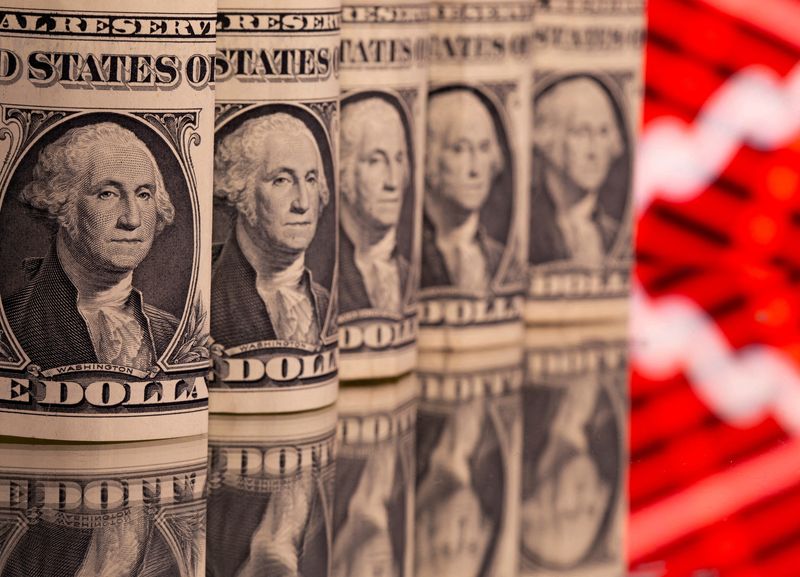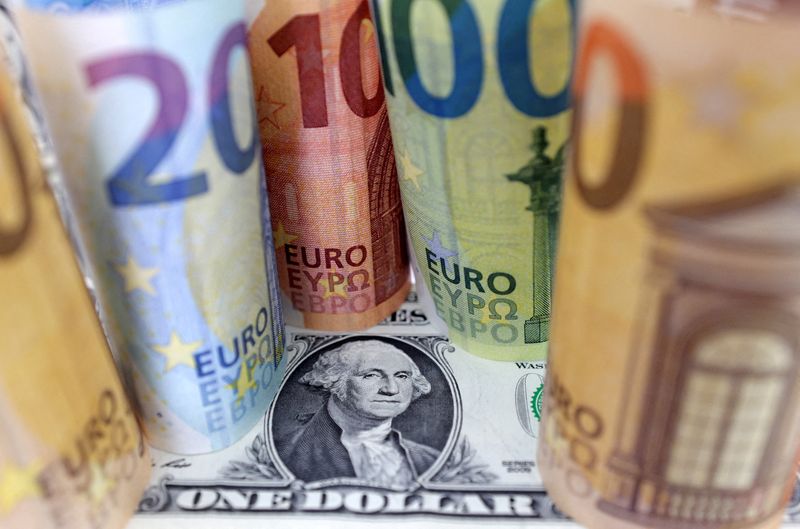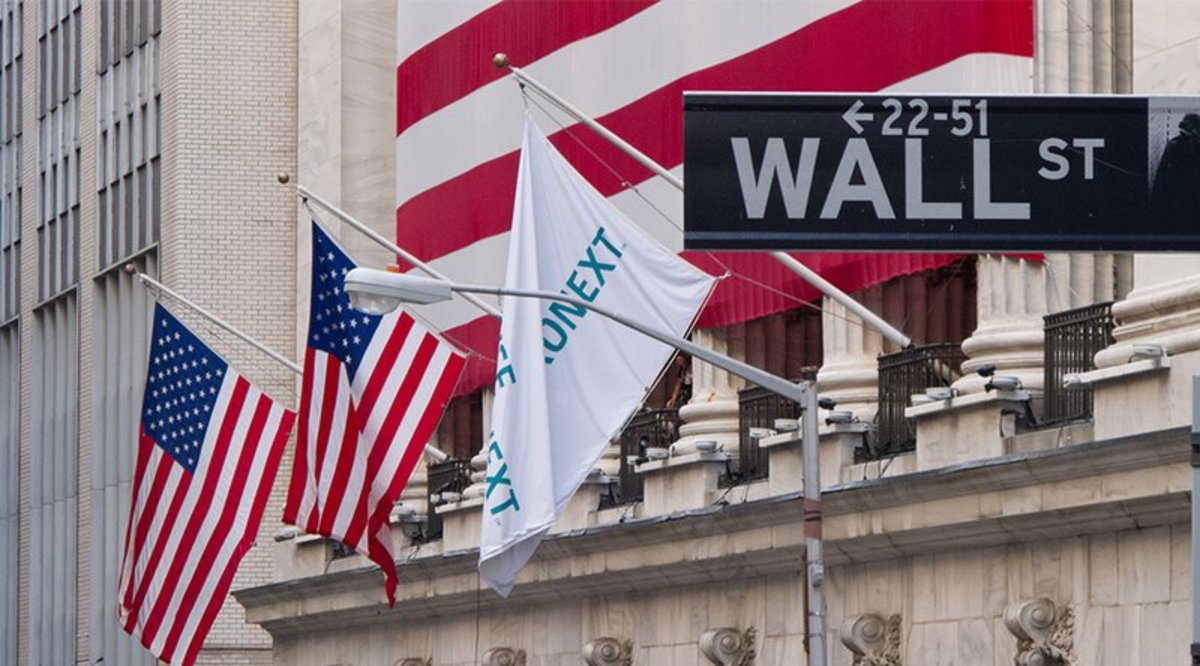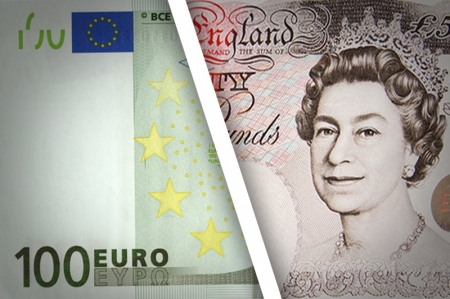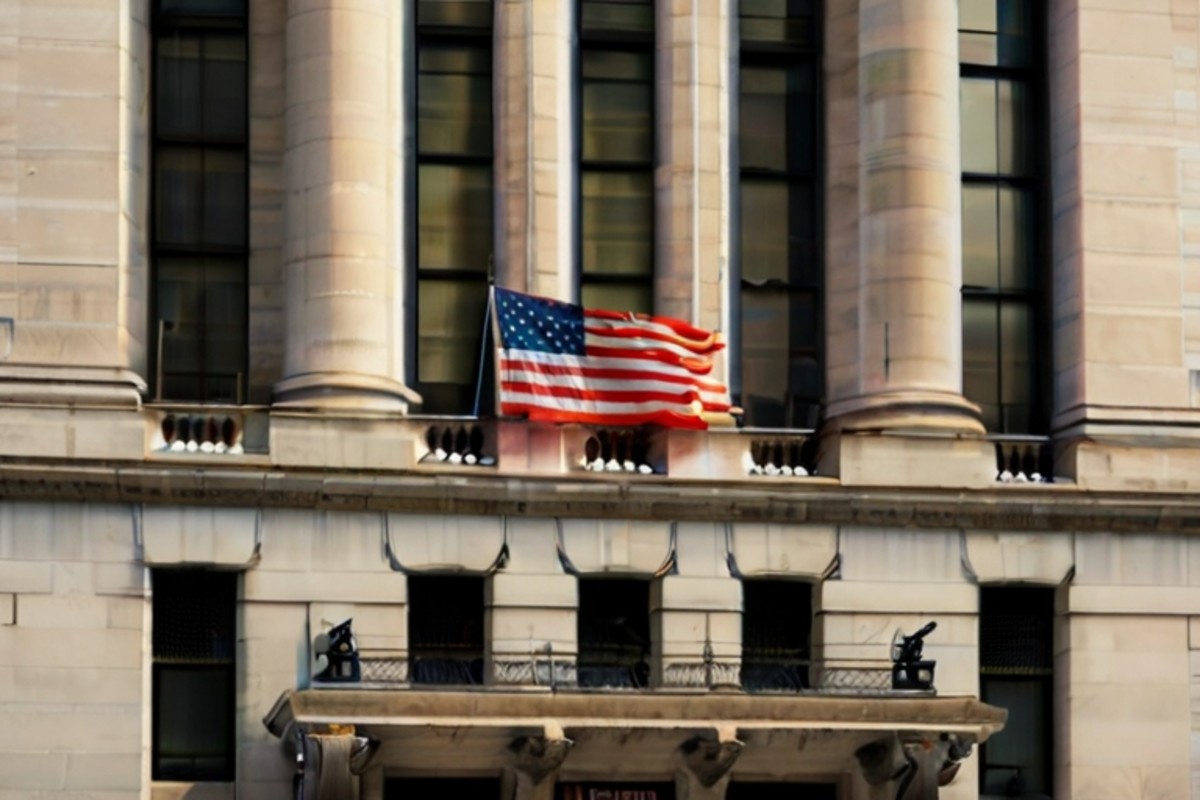Month: May 2024
Dollar down on profit taking but upbeat outlook remains
Post Content
G7 reaffirms warning against excess currency volatility in nod to Japan
Post Content
Michael Saylor And Quote the Raven: The Conundrum of Central Planning
I was extraordinarily appreciative when executive chairman and co-founder of MicroStrategy Michael Saylor sat down with me this weekend for an exclusive interview.
What’s inside this exclusive Fringe Finance interview with Michael Saylor:
What the effects of inflation will eventually be (“The Matrix”) and how globalist organizations like the World Economic Forum fit into the mixThe differences between bitching and moaning about flawed monetary policy versus offering up an actual solutionWhether he thinks the Fed will raise or lower rates next and whySimilarities and differences between bitcoin and fine art when talking about intrinsic valueIf bitcoin, now embraced by Wall Street, needs to homogenize itself into the AML/KYC world of regulated banking and, if so, how that’ll happenWhether the ETFs and the centralized storage of large amounts of bitcoin could eventually become a negative and make it easier for a nation state or bad actor to seizeWhat he thinks of the meme stock rally into names like GameStop, and whether or not such uprisings could eventually be a catalyst for bitcoin, as I have predictedWhy he is selling so much MicroStrategy stockWhat he sees as the one biggest risk to the bitcoin network going forwardWhat he thinks the next nation state to buy bitcoin will beWhether he thinks gold and bitcoin can co-existWhether or not he’ll finally debate Peter Schiff once and for all
I started off by asking Michael what he thought about macro — and what the ‘solution’ would be for a Fed that is stuck between a rock (inflation) and a hard place (depression).
Saylor told me: “I think they’ll do everything they can to create the appearance of low consumer inflation. At some point, we’ll modify the market baskets in the CPI, their PPI, and that’s probably occurring at whatever rate it can. And I think everybody would like to just focus the public on market baskets of products that aren’t appreciating too much in price and get them to not focus on the things that are going up in price more.”
“But the bottom line is that it doesn’t feel like it’d be responsible for them to lower interest rates or for some people who would like them to raise interest rates,” he said.
“They know they can’t afford to raise them. They would love to lower them. The numbers aren’t quite cooperating with them, but if we drop coffee out of the consumer price index and then we go find ten other things that are expensive and drop them from the consumer price index, yeah, this all comes down to normalization of life, right? If I imagine that you can live in a 400 square foot apartment built with drywall, with a single flat panel screen and boxed manufactured food, I can get the cost of living down. And if I can just replace streaming Taylor Swift videos on Netflix with going to see a Taylor Swift concert for 500 bucks, then the inflation will go away.”
When I pressed him further about quality of life deteriorating as a consequence of inflation, and how long the government can keep the charade going, Michael told me: “I think they can go forever, my friend. I think they can continue to make hedonic adjustments. Why do you need a car? You could Uber. Why do you need to be able to drive when there’s a self-driving Uber? What happens when we’ve got one-tenth as many cars and robots drive them? And why do you need to go anywhere in a robot car when you can just watch it on YouTube? And why do you need to even watch it on YouTube? You know, if you can put on virtual reality glasses, why do we even need an 80-inch television?”
“So I can take this ad infinitum to the extreme. I mean, the extreme is like ‘The Matrix,’ right? We just plug in, jack something into the back of your vertebrae, and give you a feeding tube. Why do you really need a steak when you can eat hamburger? Why do you need hamburger when you can eat a soy burger? Why do you need a soy burger when we could just force-feed you some sugar protein concoction or something? So when will that end? I mean, I’m being tongue-in-cheek, but let’s just say we won’t hit a crisis in the next decade. I mean, that’s all that really matters, right?”
“The rank-and-file average person will be forced to lower their standards, and they’ll have to give up their car and their house.”
He continued: “I mean, if you look through history, there are lots of examples where people’s expectations and quality of life were compressed down to the bare minimum, then expanded, and then contracted again. And, you know, I’m not here to solve that, right? Like now, when we go to macro, we’re talking about solving the economic problems of the world. Very difficult. And then you get into political issues, and that’s double difficult. And the truth of the matter is that’s a bit above my pay grade.
My view is just, yes, there will be inflation. The government will have to keep printing money, and that will cause the price of scarce, desirable assets to appreciate. The rank-and-file average person will be forced to lower their standards, and they’ll have to give up their car and their house.”
Naturally, this prompted me to ask him where the World Economic Forum and all these globalist organizations fit in the picture. Asking about whether the WEF and the likes are truly nefarious or simply doing the wrong thing in ushering in this new age, Saylor told me: “You read Nicholas Taleb’s work, like *Antifragile* and *Fooled by Randomness*, I mean, all of his canon. And you know, what he says, in essence, is that well-intentioned people doing things are the problem, right? Because, yeah, it’s the doing of stuff. It’s like if I put someone in charge of the world and I tell them to do good, the odds are they’re going to do bad, right?”
He added: “It’s like if I said, okay, you are in charge of determining the curriculum or the education for 18 million children. Well, good luck with that. But, I mean, are you qualified to do it? Is anybody? I mean, it’s kind of like, right? The conundrum is central planning.“
“The conundrum is central planning.”
Saylor then laid out the two things he sees driving bitcoin to success: “One is, you know, if inflation of the currency is high in whatever the country is, then using a fiat currency as a capital asset becomes more and more inefficient. So, obviously in hyperinflation scenarios like Nigeria, Lebanon, Argentina, or Venezuela, there’s a stampede away from that currency to some other form of capital, right? And so inflation will drive it. But the other thing that will drive the success of Bitcoin is not just the inefficiency of central government or central banking planners, but also the inefficiency of every corporation.”
After he explained further, I asked him about my article predicting that the next economic crisis would be a positive catalyst for bitcoin:
He said about this, and the GameStop saga: “I mean, the people piling into the meme stocks, they have the right idea, but it’s the wrong execution. Or I understand their motivation. It’s like they’re angry with the system. And so they ought to be buying Bitcoin if they were smart, right? The people that have that sentiment, that are unhappy with the status quo and are smart, are buying Bitcoin. And the ones that are simply angry but haven’t thought very deeply about what’s going to happen are buying these meme stocks.”
“I mean, the people piling into the meme stocks, they have the right idea, but it’s the wrong execution.”
“They feel disenfranchised,” he continued. “They want to make money. They feel disenfranchised. They feel like the system is rigged against them. They’re irritated at the establishment, right? I mean, there’s a million of these motivations, and they’re expressing their sentiment through their trading of meme stocks. But the problem is if you increase the value of a company by a factor of 10 in excess of its true value and cash flow potential, then the management team of the company just prints 10x more stock, and then the stock price crashes.”
“Well, not only do they do it, they have a fiduciary obligation to do it. Like if my company is worth $10 a share and you drive the stock to $100, then they’ve got to issue equity because that’s their job. And so it’s really kind of silly to express that sentiment by buying an equity policy, because equities aren’t scarce. Satoshi is not going to double the supply of Bitcoin if you pile into Bitcoin. The whole point, the reason it’s a commodity, is there’s no one that can rug pull you and there’s no one that can inflate the supply.”
Trying to wrap my head further around the idea of intrinsic value, I asked Saylor about the analogues between bitcoin and fine art. Talking about art, he told me: “I guess what I would say here is there’s a monetary premium ascribed to the Picasso because it’s deemed scarce, desirable, and portable. So it passes the Bernard Arnault test. And the Bernard Arnault test is: I want to buy something that a person richer than me, more cultured than me, will want to buy from me in a decade. So you ask the question, would someone with a lot of money want to own this? Well, it’s a scarcity collectible for cultural reasons, but it’s only valuable to people in Western culture who appreciate that form of art. So it’s really a specialized property asset or specialized collectible.”
He continued: “I think Velazquez, it’s a very famous note in Durant’s story of the Renaissance. He writes that the great court painter in the Spanish court went to Rome to buy masterpieces with the King of Spain’s checkbook, and nobody would sell him anything because the rich in Italy kept these paintings as a store of value and an inflation hedge in the 16th century. If you have to flee with your life—and they had to do it all the time—you get kicked out of your city.”
“You have to leave your real estate behind. You maybe carry your gold, but gold is heavy. So you take a painting, roll it up, and most— even today, if you were a rich person living in a country, pick the country, and the government collapses—what would you rather have? A billion dollars of gold? Would you rather have 20, $50 million paintings? Would you rather have a billion dollars of a company in that country? Would you rather own a billion dollars of real estate or buildings? Do you want to own a billion dollars of oil? What are you going to be able to get out of the country? Your best hope is to roll up the Picasso in a tube and smuggle it out of the country.”
On explaining where art’s intrinsic value comes from, he added: “So in terms of economic density, you’re like, well, why does anybody else value it?”
“Well, bragging rights. It’s a trophy asset. Like, why does someone value owning a football team, or why do they value owning a copy of the Magna Carta? At the end of the day, it’s because you have 10,000 billionaires. And once you have that many billionaires, they will allocate 5 percent of their wealth to those kinds of collectibles because they can. Right. But it’s not the world’s best capital asset. You’re not going to capitalize Microsoft money with art. It doesn’t make any sense because the art auctions are probably all rigged. It’s an unregulated market. It’s not liquid. They’re not fungible. They’re specialty. There’s all sorts of uncertainty.”
“The Holy Roman Empire sacks Rome, and they murder, rape, and pillage everything. You can see the appeal of fleeing the town with your art. I mean, you can see the appeal of that. But yeah, Bitcoin’s a better idea. Bitcoin is the idea of a fungible capital asset that all of the wealthy, powerful, educated people in the world are going to want that you can actually teleport out of the country in a few minutes. So I think ultimately these guys get caught up in intrinsic value. And of course, the best money has zero intrinsic value. It’s all monetary premium. That’s the best money. It’s pretty obvious.”
Dovetailing from ‘the best money’, I asked him how bitcoin is homogenizing itself in a world of increasing banking regulations like AML and KYC. Saylor told me: “Well, I think it’s doing it now. I mean, you’re watching it, right? For example, Block sells $10 billion worth of Bitcoin every year via Cash App. They’re a publicly traded company. They abide by AML and KYC regulations. They have compliance. They have responsibilities. There are certain things they won’t do in New York State because of state laws. So Coinbase is handling Bitcoin. They’re in a continual dialogue with the SEC. It’s sometimes confrontational, but you’ve got them working on it.”
“Fidelity, you know, Fidelity Digital Assets is custodying billions and billions of dollars of Bitcoin. I’m sure they’ve got an army of lawyers and finance people thinking about it.”
I also pressed him on why he’s selling so much MicroStrategy stock — to which he replied: “It was like April of 2014. I was given a stock option as part of my compensation for 400,000 shares. It was a 10-year stock option that expires worthless after 10 years if I don’t exercise it. So, I think the expiration date was like April 25th or something like that. About a year ago, I said, well, eventually, I’m going to have to exercise it. So, how do I do it?”
He explained: “If you go back and check out our conference call sometime in the October-November timeframe, I told all the shareholders I’d put in place a 10B51 plan. That plan was to sell 5,000 shares a day, every day, for 80 trading days, the last 80 days at the end of the window. I held the option for the longest time I could—10 years—and then I had to exercise it.”
“So, I wasn’t actually selling shares that I owned. My shares, I’m actually holding. What I was doing was exercising the option granted a decade prior. I was selling into the market to pay the cost of the option and banking the money because that was my only choice. Otherwise, the option would expire worthless.”
“The reason you saw continual reports is because, every day, you have to report those, right? Public companies have total transparency, so every single day, you could see exactly 5,000 shares, you could see the price they were sold at, it was all programmatic. The alternative would be to do it without a 10B51 program and try to do it in three days. But that would have been much more anxiety-inducing for everybody because there are lockup periods, and then people would be thinking, well, which three days, why did he pick those three days? I was trying to be as graceful and transparent as I could in something that I kind of needed to get done.”
Finally, I asked him about the biggest risk to the bitcoin network. He responded: “I think that Bitcoin, the network, has won the crypto wars. As a crypto asset, it’s won and is destined to grow from a trillion to 10 trillion to 100 trillion. So, it’s winning. Just like any empire or any winner, what’s the biggest risk? The biggest risk is that the people within the network get fat, dumb, and happy, and then it’s overcome by… what is the word? Gluttony? There’s this tendency for people in successful countries to meddle and want to fix things that aren’t broken.”
“So really, the biggest risk to Bitcoin is all of a sudden charismatic, well-intentioned developers deciding to improve it themselves, and they introduce instabilities by attempting to improve it.”
Finally, I asked him to debate Peter Schiff on my podcast. He replied: “Peter has been debating on this topic for a decade now. I mean, heck, when I got into Bitcoin in 2020, one of the reasons I bought Bitcoin was because I saw the Eric Voorhees-Peter Schiff debate from 2017. He wasn’t persuasive in 2017, and he hasn’t been persuasive since. I think it’s a disservice to promote that in general.”
“By the way, the elephant in the room here is I don’t think you can find a single person in the world who owns a billion dollars worth of gold. I challenge you to find one. Go find me a person who owns a billion dollars worth of gold bullion as an investment, and then bring them. If you can find me that person, Chris, I’ll debate them. I will debate them. If you can find me a person who legitimately bought a billion dollars of gold as an investment and they want to debate me on your podcast, I’ll do it.”
This is a guest post by Quoth the Raven. Opinions expressed are entirely their own and do not necessarily reflect those of BTC Inc or Bitcoin Magazine.
Kenya Partners With Marathon To Monetize Underused Energy By Mining
Kenya has signed a deal with Bitcoin miner Marathon Digital Holdings to monetize the country’s underutilized energy resources. This partnership, announced by Marathon’s CEO Fred Thiel on X, marks a significant step towards leveraging Kenya’s surplus energy for Bitcoin mining and technological development.
Signed! Kenya and @MarathonDH sign a historic deal for monetizing underutilized energy across Kenya and jointly developing technology projects. pic.twitter.com/d4Zh9o8MGI
— Fred Thiel (@fgthiel) May 24, 2024
“Kenya has a special spot in the history of digital currencies as it is the home of M-PESA, which in 2007 was one of the first ways for people in Kenya and now across Africa to transmit value digitally by using mobile phone credits,” stated Thiel. “Today tens of millions of people across Africa use M-PESA for branchless money transfers. Marathon is proud to play a part in the next phase.”
Signed documents for the partnership
Earlier this month, Kenya and Marathon Digital Holdings initiated their partnership, with President William Ruto confirming that Marathon is in consultations with Kenya’s National Treasury and Ministry of Energy regarding the mining operations. This collaboration aims to harness Kenya’s abundant underutilized energy and monetize it via mining.
Kenya’s geothermal energy capacity is substantial, with the country being one of the leading producers of geothermal power in Africa. Despite this, a significant portion of the generated energy remains untapped. By partnering with Marathon Digital Holdings, Kenya seeks to turn this surplus into a valuable resource, generating additional revenue and promoting energy efficiency.
The deal involves not only the use of untapped energy for mining but also the joint development of technology projects that could benefit the country’s infrastructure and technological landscape.
President Ruto emphasized the potential benefits of their partnership earlier this May, stating that “Kenya means business.” By effectively utilizing excess energy, Kenya can boost its economy, create jobs, and position itself as a leader in sustainable energy and technology.
“Marathon Digital has been ushered to consult with the National Treasury in Kenya on our cryptocurrency mining regime, and to the Ministry of Energy to discuss its energy needs in connection with cryptocurrency mining here in Kenya,” the President said.
During the @AmChamKE Business Summit in Nairobi, Kenya’s president @WilliamsRuto met with the MARA team to discuss how our digital asset data centers can spur energy development in the region and foster US-East Africa trade relations. Watch the clip here: pic.twitter.com/ZgguTXdi4T
— MARA (@MarathonDH) May 1, 2024
Spot Bitcoin ETFs See Straight 9 Days of Inflows
U.S. spot bitcoin ETFs continue their hot streak, recording $107.91 million in inflows on Thursday for their 9th straight day of gains. This marks the longest inflows since mid-March, when the products saw 10 consecutive positive days.
The appetite for spot bitcoin ETFs reflects their massive success since launching earlier this year. The SEC approved the first spot bitcoin ETFs in January, and products from heavyweights like BlackRock, Fidelity, and others quickly garnered billions in assets.
BlackRock’s iShares Bitcoin Trust (IBIT) led inflows on Thursday with $89 million. Next was Fidelity’s Wise Origin Bitcoin Trust (FBTC) at $19 million, followed by $9.5 million into VanEck’s fund.
Meanwhile, the Grayscale Bitcoin Trust (GBTC) saw a $14 million outflow, extending its loss streak as investors pivot to other spot ETFs with less fees.
Click the image to learn more.
BlackRock is set to take over GBTC management, as its IBIT has rapidly become the leader among spot Bitcoin ETFs. It sits at nearly $20 billion after just 4 months, while it takes the average ETF years to reach that milestone. IBIT is now only $300 million behind GBTC in inflows to become the biggest Spot Bitcoin ETF.
This week, the U.K. also approved Bitcoin ETPs to be listed in London, further validating Bitcoin as an institutional asset class. If the current momentum continues, Bitcoin could be on track to finish May on a high note.
UBS suggests shorting USD/CHF amid DXY pullback and data woes
Post Content
Dollar edges lower, but on track for hefty weekly gains
Post Content
Analysts sees upside for EUR/GBP amid weak UK retail sales
Post Content
Asia FX nurses losses as dollar hits 10-day high on easing rate cut bets
Post Content
SEC Approves Spot Ethereum ETFs
The U.S. Securities and Exchange Commission (SEC) has just approved the first batch of spot Ethereum (ETH) ETFs. These ETFs could have huge implications across financial markets, given the popularity of the asset and acknowledging how spot Bitcoin ETFs were the fastest growing ETFs in the history of ETFs, according to BlackRock CEO Larry Fink.
JUST IN: 
— Bitcoin Magazine (@BitcoinMagazine) May 23, 2024
The newly approved spot Ethereum ETFs will allow investors to gain direct exposure to Ethereum, the second-largest cryptocurrency by market capitalization, without having to purchase and store the digital asset themselves.
“TO BE CLEAR: This does not mean they will begin trading tomorrow. This is just 19b-4 approval. Also needs to be an approval on the S-1 documents which is going to take time,” Bloomberg ETF analyst James Seyffart commented on the news. “We’re expecting it to take a couple weeks but could take longer. Should know more within a week or so!”
The rapid change in approval odds for these ETFs shocked everyone this past Monday, when Bloomberg analysts Eric Balchunas and James Seyffart raised their approval odds from 25% to 75%. “Hearing chatter this afternoon that SEC could be doing a 180 on this (increasingly political issue), so now everyone scrambling (like us everyone else assumed they’d be denied),” Balchunas explained.
It has been a long debate on whether Ethereum should be deemed as a security or a commodity. Critics of Ethereum claim it passes the Howey test, and therefore should be classified as a security. The Howey test consists of four criteria: an investment of money, expectation of profits, common enterprise, and reliance on the efforts of others. Here is a video below from 2014 of current SEC Chair Gary Gensler explaining why he believed at the time that ETH passes the Howey test.
Friendly reminder that the current Chair of the SEC thinks Ethereum passes the Howey Test. pic.twitter.com/qFKeBFdKCH
— Modern Stacker (@ModernStacker) January 20, 2023
And now due to recent regulatory developments, along side this ETF approval, regulators appear to now be pushing towards regulating ETH as a commodity.
Yesterday, a bill to develop a regulatory framework for digital assets (H.R. 4763 – Financial Innovation and Technology Act 21 (FIT 21)) passed the House. The bill, unlike another Bitcoin and crypto related bill voted on in the House and Senate earlier this month, received positive feedback from the White House, initially saying they did not like the legislation in it’s current state but wanted to work with Congress to find a resolution, and would not veto it shall it get to President Biden’s desk to sign into law.
“We had two thirds of the House of Representatives vote in favor of clarity for crypto,” Patrick McHenry, Chairman of the U.S. House Committee on Financial Services Republicans, told CNBC today. “It creates a legal framework, giving the SEC a proper role, and the CFTC a proper role, rather than the set of conflicting regulatory actions that those two agencies have taken over the last ten years…It settles what is a digital asset, gives it a legal framework for trading and the purchase of those assets.”
#WATCH: Chairman @PatrickMcHenry joins @SquawkCNBC to discuss yesterday’s historic, bipartisan vote on the landmark #FIT21. He covers:





— Financial Services GOP (@FinancialCmte) May 23, 2024
If FIT 21 passes the Senate and gets signed into law by President Biden, then ETH could be classified as a commodity under these new guidelines, but it remains to be seen the official outcome of that decision.
Congress is also currently “building a pro-crypto army”, according to US Senator Cynthia Lummis, who shared her support for the House passing FIT 21 yesterday.
